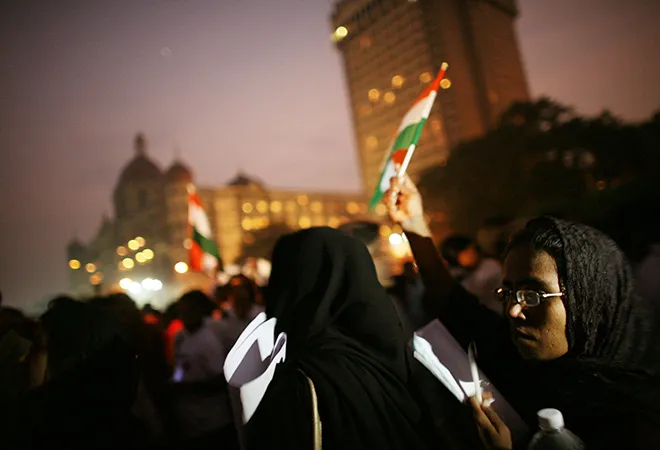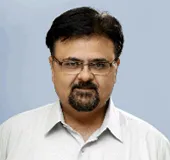-
CENTRES
Progammes & Centres
Location
Uddhav Thackeray would need to show great maturity and statesmanship to keep the MVA partners glued together when the Centre unleashes NRC in Maharashtra.

The Citizenship (Amendment) Act (CAA) has evoked extreme, even violent, reactions from various quarters. The Bill seeks to ‘naturalise’ all Hindus, Sikhs, Parsis, Buddhists and Christians — presumed to be persecuted religious minorities in the neighbouring states of Pakistan, Afghanistan and Bangladesh — who are living in India without a valid citizenship prior to 2014. Illegal Muslim migrants from these countries, however, would be identified through the controversial National Register of Citizenship (NRC) exercise and expelled en-masse.
This move by the BJP-led government at the centre assumes critical significance in Maharashtra, where the party has recently lost power to the Maharashtra Vikas Aghadi (MVA) — a political combine stitched together by its decades-old ally Shiv Sena with support of the Nationalist Congress Party (NCP) and Congress. For the BJP, the CAA might just be the tool to create a socio-political storm to make navigation of the government by Uddhav Thackeray, the Shiv Sena chief-turned-Chief Minister, a tricky proposition. The heightened probability of an expeditious rollout of the NRC in Maharashtra, with its primary focus on Mumbai, will thus be an early test of survival for the MVA, a coalition whose ideological mismatched partners don’t see much of anything — but control of the state government — with any great degree of convergence.
The drive to oust the alleged illegal Bangladeshi Muslims from Mumbai was initiated by various governments much before the saffron alliance came to power in 1995. As per the data obtained by from the Special Branch of the Mumbai Police, India Today reported that 5,434 Bangladeshis and 1,756 Pakistanis were deported from Mumbai between 1982 and 1994. Ironically, the maximum number of these deportations happened under the chief ministership of Sharad Pawar, the Maratha strongman and then a Congress leader, who is considered to be the prime architect of the MVA.
|
DEPORTATION OF ALIEN MUSLIMS FROM MUMBAI |
||
| Year | Bangladeshis | Pakistanis |
| 1982 | 83 | 5 |
| 1983 | 225 | 104 |
| 1984 | 178 | 196 |
| 1985 | 143 | 114 |
| 1986 | 280 | 170 |
| 1987 | 259 | 216 |
| 1988 | 497 | 215 |
| 1989 | 580 | 146 |
| 1990 | 736 | 196 |
| 1991 | 750 | 157 |
| 1992 | 596 | 131 |
| 1993 | 490 | 70 |
| 1994 | 617 | 36 |
Source: India Today
The Shiv Sena-BJP government that came to power in Maharashtra in 1995 turned on the heat against “alien” Muslims. Manohar Joshi government’s first full year in office in 1996 saw 771 deportations of “illegal” Bangladeshis from Mumbai, followed by 806 in 1997. In 1998, 582 “Bangladeshis” were deported in just seven months, as the drive intensified. In just three days between 20 and 22 July, 96 persons were sent packing. The informal settlements at Dockyard Road, Reay Road in south Mumbai and the sprawls of Chembur-Deonar and Bengalipura in Wadala along the eastern coast — considered hotbeds of alleged Bangladeshi infiltrators even today — were targeted in these eviction drives.
After the completion of the legal formalities by the Metropolitan Magistrate, all those who were rounded up were put on West Bengal-bound trains. The accompanying cops from Mumbai would ferry them all the way to the border and hand them over to the BSF to complete the extradition process. The drive that was picking up momentum, however, had to be suspended when political parties in West Bengal protested against Maharashtra’s arbitrary action. On two consecutive days in July 1998, two trains from Mumbai carrying the deportees were intercepted at Uluberia and Kharagpur, where angry mobs secured their release. Mamata Banerjee, whose party Trinamool Congress was an ally of the Atal Bihari Vajpayee-led NDA government, threatened to withdraw support and sent a three-member delegation to Mumbai on a fact-finding mission.
The government also came under fire from the opposition and left-leaning NGOs. A study conducted by three Mumbai-based NGOs — Committee for Protection of Democratic Rights (CPDR), Ekta and Women’s Research and Action Group (WRAG) — from June to August 1988 concluded that the evictions were politically-motivated. It observed that it served “no larger national interests other than to heighten the sense of communal tension in the Indian society and, in the process, give political mileage to the fascist and communal ideologies in the country.” Mumbai’s Bangladeshi-speaking Muslims “are not only victims of social and economic deprivation and marginalisation, but they are also the victims of a larger right-wing communal conspiracy to engage in a veiled effort in the politics of exclusion — so characteristic of the ideology of the governments at both the centre and the state,” it summarised.
Nearly 25 years later, while the Narendra Modi-led NDA government at the centre continues to draw condemnation, the dynamics have undergone an extraordinary change in Maharashtra. The Shiv Sena, which spearheaded the anti-Bangladeshi campaigns in Mumbai during its tenure in power in the 1990s has not only changed its colours to join forces the NCP and Congress, but agreed to a Common Minimum Programme — which, among other promises — has pledged to “uphold the secular values enshrined in the Constitution.”
Notably, after taking charge of the CMO, Uddhav Thackeray wasted no time in putting on hold several big-ticket infrastructure projects — including the contentious metro car shed at Aarey Colony and Prime Minister’s pet Mumbai-Ahmedabad bullet train — initiated by the previous government, in which, Shiv Sena was the BJP’s junior partner. However, he has not yet uttered a word on the upcoming ‘detention centre’ at a sprawling plot at Nerul in Navi Mumbai. The home department of the state is expected to soon finalise the modalities to acquire the land from CIDCO, Navi Mumbai’s town planning agency. This move, made within weeks of the conclusion of the highly-charged NRC exercise in Assam by his predecessor Devendra Fadnavis, is an ominous sign of Maharashtra coming under the NRC scanner, now much sooner than expected.
The NRC and the resultant enforcement of the CAA would be a tightrope walk, to say the least, for the Shiv Sena — a party, which since early 1990s has been demanding the ouster of ‘illegal’ Bangladeshis from India’s commercial capital. Leading the anti-Bangladeshi rhetoric was none other than the party’s founder, late Bal Thackeray, who wore the title of Hindu Hriday Samrat (Monarch of the Hindu mindset) on his sleeve and took pride in Shiv Sena cadres leading the mobs that brought about the demolition of the Babri Masjid at Ayodhya on 6 December 1992.
“I want to realise Balasaheb’s dream,” said Uddhav Thackeray when he ditched the BJP and cosied up with his father’s staunch political rivals NCP and Congress to occupy the Chief Minister’s chair. It would be perhaps difficult for him to realise that his father castigated the secularists and insisted that irrespective of what the Constitution said, India was, indeed a Hindu Rashtra. It would also be difficult for Uddhav to distance himself from his own proclamation that “the only option left is to declare India a Hindu Rashtra” made in an interview to his party’s mouthpiece Saamna in his annual birthday interview on 27 July just two years ago. Days after the NCR in Assam, Shiv Sena MP and former Union Minister of Heavy Industries Arvind Sawant, too invited a “similar exercise” to drive out the illegal Bangladeshis from Mumbai.
Within 24 hours of the CAA getting the Presidential assent, the tug-of-war has started in the inherently fragile MVA coalition. While the Congress has decided to resolutely resist CAA, Sharad Pawar has once again shown his political astuteness by demanding a joint panel of the MVA constituents to decide on the issue. The Shiv Sena, on the other hand, is clueless. It has reportedly put the onus to decide the future course of action on the Chief Minister, hinting at a possible rift within the party’s leadership on this issue. Uddhav, on the other hand, has chosen to play it safe. Turning his own ideological conviction on its head, he has not only termed the CAA as a “very wrong message being sent out” to the country, but opted to wait for the Supreme Court’s verdict on the Constitutional validity of the Act. Given his inexperience in managing the affairs of the government, Uddhav Thackeray would thus need to show great maturity and statesmanship to keep the MVA partners glued together — not if, but when the Centre unleashes NRC in Maharashtra.
The views expressed above belong to the author(s). ORF research and analyses now available on Telegram! Click here to access our curated content — blogs, longforms and interviews.

Dhaval is Senior Fellow and Vice President at Observer Research Foundation, Mumbai. His spectrum of work covers diverse topics ranging from urban renewal to international ...
Read More +